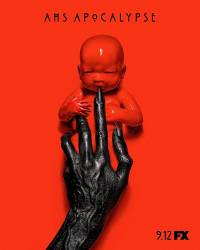
Question: One thing I do not understand is this... "if" the souls of the deceased (that die within the walls of "Murder House") are trapped there for eternity then how does the maid get to go see her mother (obviously off premises) and Tate get to meet up with Dr. Harmon for coffee for his appointment?
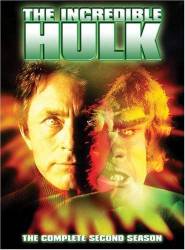
Question: In this version of the character, why is he named David Banner instead of Bruce Banner?
Chosen answer: Bruce has always been the character's middle name. In the comics he is Robert Bruce Banner, here he is David Bruce Banner. Apparently the executives behind the show preferred the name David.

Question: If Dustin, Dana, and James don't appear in a lot of episodes in the show, why are they still considered main characters?
Answer: Dustin was only considered a main character from season 1-3, and probably just because he's Zoey's brother. Dana was only a main character for season 1 and James didn't become a main character until season 4.
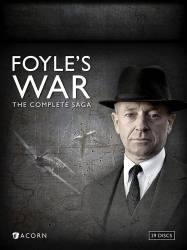
Question: Why does Foyle wear an overcoat at all times of the year? I know that the English summer is temperate, but always a long, floppy overcoat?
Answer: He doesn't actually wear it all the time even in summer. In some episodes in the summer he simply wears his suit with jacket.
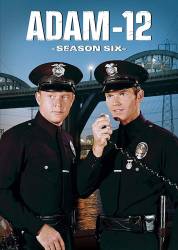
Question: I'm trying to find out in which episode this happens. Reed and Malloy are driving when they get a call to be on the lookout for a red convertible. In the rear window of their squad car you see the exact car described in the radio call. It passes them, then is seen in front, but neither of them comment on it and it's not referenced later. Not sure if it was a poor choice of stock footage or a gag, but what episode does it happen in?
Answer: This is from Season 1, "The Long Walk." After Malloy and Reed responded to a "211 in progress", the partners later search the area and question a man walking his dogs, and it's this man who tells them the young guy they're looking for drove off in a red convertible, so Reed radios in the added information and clears them. Later, when the partners are driving along, Reed brings up the topic of the criminal's convertible, and while they're discussing it we can see through the squad car's rear window that a red convertible with its black top up changes lanes, and in Malloy's closeup just as they're talking about how the criminal's convertible was likely stolen, we see the red convertible passing Malloy to his left. That's all we see of this red convertible.
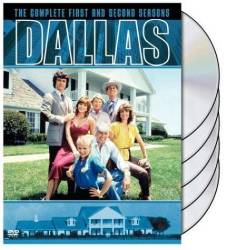
Question: Given how long it ran and its popularity, was there ever talk of a crossover with Dynasty regardless of different networks?
Answer: No, back then such things were unheard of. Too much politics, contract disputes and what would the characters do if they met.

Question: Kind of a long question but please bear with me. In one episode, Catherine and Vince have to rescue a boy who was being chased by a man who murdered his father. The boy claims to have a letter from his father detailing a crime that occurred and how he was killed for betraying the man. The end of the episode has the boy reading the letter out loud in court. The judge asks to see it and after a quick look over, he gives it to the man who was after the boy. When the man looks at it, there's nothing on the paper but squiggly lines. The judge then has the man arrested for murder. Why would the judge do this? There were no witnesses. All they had was the word of a boy and a piece of paper with nothing but wavy lines on it. No real evidence was presented to the judge at all.
Answer: (Episode 1x19 "Everything is Everything") It's not a regular court or judge, it's a Gypsy "kris" (court) to determine a new judgement for the boy, Tony, and it's headed by Milo, who is the Gypsy King. Milo had two sons, elder Eric (Tony's dead father) and Vick (Tony's uncle), who framed Eric for theft from the family business, and it was Milo (he didn't know the truth) who held the earlier "kris" which declared Eric, his wife and son, Tony, to be "marime" as if they're all dead and had them banished from the community. Then Tony's parents were in a fatal car accident in Chicago, and before Eric died he told Tony the truth about how and why Vick framed him. Now at the new "kris" Tony has the chance to speak to prove his father's innocence, and tells everyone that Vick lied and stole the money, then framed his father because Eric had been next in line to be the Gypsy King. Milo tells Tony that his word isn't enough for a verdict and he must show proof. Tony tells his grandfather that Eric gave him a letter, while on his deathbed, in order to clear his name and punish the guilty. When Tony pretends to read the letter (remember, we learned Tony can't read), he starts out as if the letter was written to his father, Eric, and cleverly pretends that it was written by Vick's accomplice from the theft (Vick's friend sitting behind him, who also works at the body shop), admitting to the frame-up. As Tony keeps "reading" we see Vick turn around to his accomplice and say, "You fool!" for the letter's admission of guilt, and then the accomplice replies loudly, "I didn't write no letter... You said nobody could prove nothin'!" for everyone to hear. So after the truth has come out, Milo shows Vick the letter which only has squiggly lines on it, just so Vick understands that even though the letter wasn't real, he and his accomplice still admitted their guilt for the theft, and now they will be "marime" as if they're dead and banished from the community. Vick did not murder Tony's father, and he's not arrested.
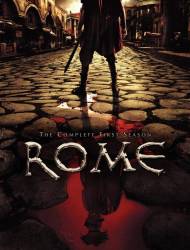
Question: I don't understand why Pullo is so angry with Vorenus and thinks he needs to apologise. Having fought in Caesar's army for as long as Pullo has he would be very well aware of the repercussions for what he did, why would he blame Vorenus for abiding the law and doing what is required of him as a centurion?
Answer: Its Pullo's nature to resent people of higher standing than him. His jealousy of Vorenus in later episodes, which in part leads to their falling out, is proof of that. From Pullo's point of view, Vorenus just got better breaks to get where he is in the army and so, isn't really his superior. That, plus his natural arrogance is explantion enough for his behaviour in spite of the fact that he broke the rules and was being fairly punished.
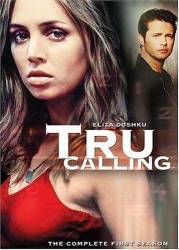
Past Tense - S1-E4
Question: What time does Tru work her shift at the morgue? In this episode, she was at work when Marco scared her from under the sheet. Then she was eating dinner with Harrison. What time did they eat? Wasn't it already late at night by then? Then she was back at work - I guess a dinner break makes sense for a nighttime shift - and she met Luc. The second time the day happened, she was at work when Marco tried to scare her. Then she was walking somewhere with Harrison and she hadn't met Luc. Was this after the same dinner she had with Harrison the first time? Was she still going to meet Luc later?
Chosen answer: The next episode shows that Tru didn't meet Luc after all, even though she should have been in work by the time he showed up. I think the answer is that the writers don't actually know.
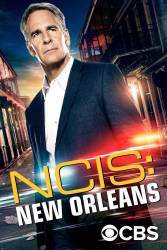
Question: How does Bakula afford that bar he owns? Do Feds really make enough to make such purchases?
Answer: It should also be noted, just because someone owns a small business (in this case a bar) doesn't mean they're rich, or they had to be rich or make enough money from another job in order to afford it. Banks provide small business loans and having steady employment, good credit history, solid business plan, etc would allow someone to get a loan. Most business owners even say they "own" whatever bar, restaurant, store, or business they run even if it's leased or mortgaged.
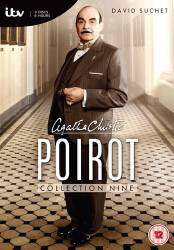
Question: Why does Poirot claim to be an American citizen when being interrogated by customs?
Answer: He definitely says "Belgian", but the subtitles get it wrong and show him saying "American."
Answer: It sounds a bit like "American", but listen very closely and you will hear "Belgian".
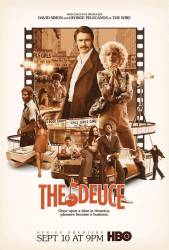
Question: When talking to Alston, the police captain said he sought out a black officer who hasn't made rank because he's "got no rabbi" and therefore is likely "on the outside enough to be trusted"- what does the phrase "got no rabbi" mean?
Answer: "Rabbi" is old police slang for a superior, experienced officer who mentors a younger officer. "Got no rabbi" in this context is saying Alston hasn't been on the job long enough to have been fully taken into the fold by the other officers, and would thus be a good choice for the Captain's plan of recruiting an un-corrupted officer.

Question: This season has added the odd effect of a large puff of red smoke/dust whenever someone is shot. It is unrealistic and distracting. Wondering if anyone knows the reason for this change.
Answer: Depending on caliber the body does spray blood from .308 and up.
Answer: Only because it looks cool on screen.
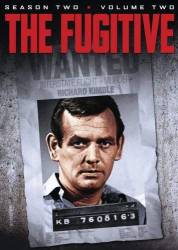
Tiger Left, Tiger Right - S2-E6
Question: The episode first aired October 1964. How could a Ford Mustang be seen in the episode if that car wasn't available until April 1965?
Answer: Production vehicle models aren't in sync with the calendar year. The '65 Mustang began production in March 1964 and first sold in April 1964, before it was "introduced" the following year. I don't know which model was seen in the episode, but the 2+2 fastback was sold in September 1964. The 1964 film "Goldfinger" uses a 1965 Mustang as part of Ford's product placement. Basically, in the 1930's, FDR ordered automakers to release vehicles in the fall of the preceding calendar year "as a means of facilitating regularization of employment in the industry." Now, automakers can release new models as early as Jan 2 of the preceding year.

Question: What was the reason that several major American cities were attacked with nuclear weapons?
Answer: According to Wikipedia: "It was a cross-section of 'domestic militia, anarchists, and religious fanatics' – terrorist groups that would never ordinarily collaborate, ideologically or politically. The only thing that connected them was the desire to take down the federal government of the United States. The entire plan was orchestrated by someone with deep resources, an ability to coordinate diverse groups, and by all indications, an American. After someone (believed to be Thomas Valente) tipped off the terrorists about the government's knowledge of the plot, they moved up the timetable for the attacks."
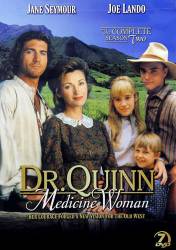
Question: When Matthew goes against Dr. Quinn's suggestion that he needs to rest and heal, and hitches his curse to leave, the sign above him says "Coopering." Shouldn't that be "Coppering"?
Answer: A Cooper was someone who made various things out of wood including wooden caskets and even barrels.

Question: How was the mother cell discovered? Was it man made or natural?
Answer: In the episode "Blame It on Leo", Leo Butler, who use to work for Reiden, tells the group about the "mother cell." He explains it's Reiden's molecule vector. So it's something Reiden created. In real life science, vector cells are used to introduce DNA sequences from one organism to another. There are a variety of ways for this to occur, however, in the show not much explanation is given about how Reiden's mother cell works (and tends to bend how it works to the will of the plot).
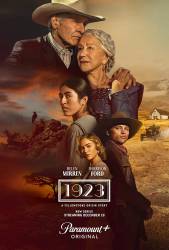
Question: In the opening sequence, Elsa narrates that violence "stranded us on the beaches of New Jersey." What happened in New Jersey that she was referring to?
Answer: Elsa's narration is a loose timeline, before 1883 (the origin story show). Elsa states "violence has always haunted" her family. They, who travelled, suffered on the overcrowded immigrant "coffin ships" (called this because so many died) sailing to North America. Upon their arrival in the new country, they were "stranded" when the ship landed in New Jersey, at one of the immigrant landing depots on the Northeastern shores. (Then, they served in the armies during the American Civil War, "devoured" at the bloody Shiloh and Antietam battlefields.)
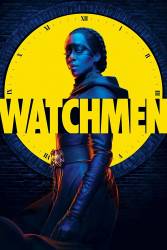
She Was Killed by Space Junk - S1-E3
Question: Agent Angela Blake had to surrender her weapon to enter the funeral of Crawford. When a suicide bomber threatens the group, Blake shoots the bomber with a gun. Where did she get the gun?
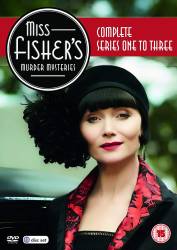
Chosen answer: Because on Halloween, the souls of The Dead are said to roam the Earth. That includes those souls that are trapped within the walls of the "Murder House".
THGhost